2021 Graduate Fellows Colloquia in Jewish Studies
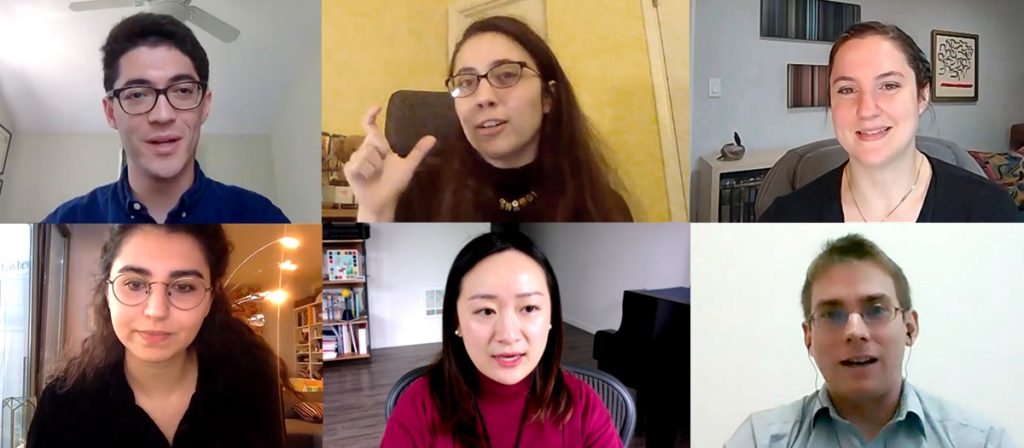
Learn from the 2020-2021 cohort of Stroum Center graduate fellows as they present their research in Jewish studies, covering topics ranging from Ladino-language newspapers to modern Sephardic history to medieval Kurdish Jews and ancient Jewish art.
Browse each of the presentations, or view a full list by clicking the + symbol below:
Colloquium | Sephardic Experiences of Modernity: Newspapers, Migrants and Midwives
The Ladino Press: Using Machine Learning to Excavate Historic Ladino Newspapers
Ben Lee, Richard and Ina Willner Memorial Fellow
The Modernization of Education & Its Impact on Midwives: Jewish “Bloody Midwives”
Büşra Demirkol, Mickey & Leo Sreebny Memorial Fellow
Mapping Early Migration from ‘Turkey’ to Seattle: A Social History of Seattle’s First Ottomans
Oya Rose Aktaş, Rabbi Arthur A. Jacobovitz Institute Fellow
Learn more about each presenter and their research below.
Colloquium | Tradition and Continuity: Jewish Cultural History in Art, Music & Travelogue
From Home to Zoom: Sustainable Futures for Sephardic Music
Ke Guo, Robinovitch Family Fellow
The Binding of Isaac in Late Antique Synagogues: The Function of Biblical Art in Performing Jewish Identity
Abby Massarano, Robert and Pamela Center Fellow
Tracing Jews in Medieval Kurdistan: Syriac & Muslim Sources as Windows to Jewish History
Jeff Haines, I. Mervin and Georgiana Gorasht Fellow
Learn more about each presenter and their research:

Ben Lee, Richard and Ina Willner Memorial Fellow
“The Ladino Press: Using Machine Learning to Excavate Visual Content in Historic Ladino Newspapers”
Ben is a third-year Ph.D. student in the Paul G. Allen School for Computer Science & Engineering at the University of Washington. His research lies at the intersection of machine learning and human-computer interaction, with application to cultural heritage and the digital humanities. Ben graduated from Harvard College in 2017 and has served as the inaugural Digital Humanities Associate Fellow at the United States Holocaust Memorial Museum, as well as a Visiting Fellow in Harvard’s History Department. He is currently a National Science Foundation Graduate Research Fellow. For his fellowship research this year, Ben will be applying his project Newspaper Navigator to historic Ladino newspapers in order to extract and study the content using machine learning. Read about Ben’s research:
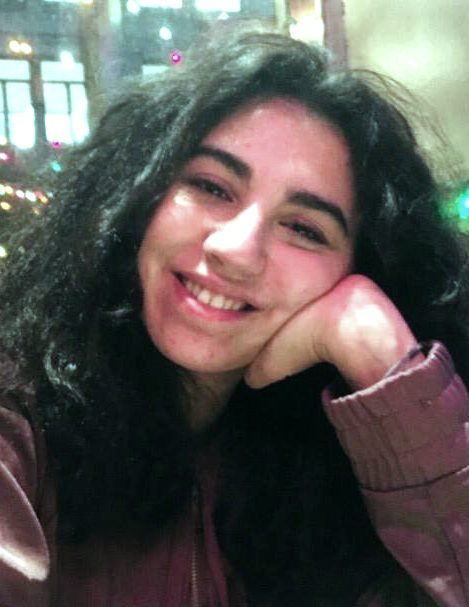
Büşra Demirkol, Mickey & Leo Sreebny Memorial Fellow
“The Modernization of Education & Its Impact on Midwives: The Case of Jewish ‘Bloody Midwives'”
Büşra Demirkol is a Ph.D. student the Interdisciplinary Program in Near and Middle Eastern Studies at the University of Washington. She received her B.A. degree in sociology at Galatasaray University and her M.A. degree in Turkish studies at Sabanci University. Her master’s thesis focused on modernization in the legal field during the late Ottoman era and its impact on women on the margins. Based on penal codes, codification discussions and court records, she traces how marginal women were redefined and constructed within the boundaries of the public sphere in Ottoman legal culture, and were subjected to the state intervention according to a modern understanding of crime and punishment. Prior to graduate school, she also worked as a social worker with African, Afghan and Syrian refugees in Istanbul and conducted research about the official and unofficial schooling of Syrian children.
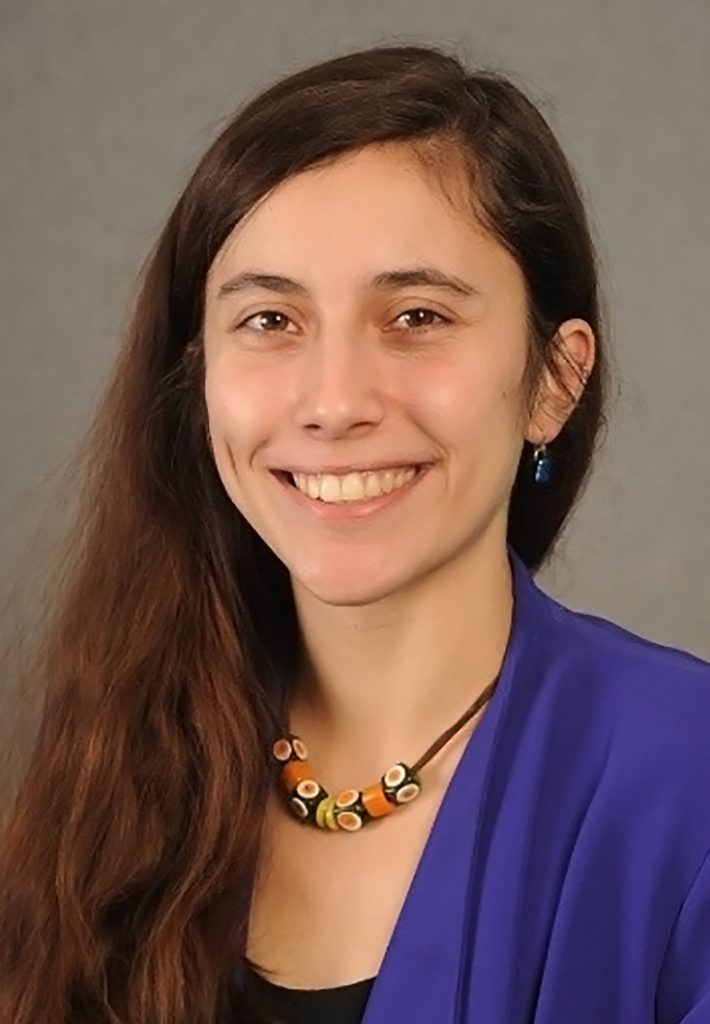
Oya Rose Aktaş, Rabbi Arthur A. Jacobovitz Institute Fellow
“Mapping Early Migration from ‘Turkey’ to Seattle: A Social History of Seattle’s First Ottomans”
Oya Rose Aktaş is a Ph.D. student in the University of Washington’s Department of History studying non-Muslim communities in the transition from imperial subject to liberal citizen in the late Ottoman Empire and early Turkish Republic. Her current research focuses on how state violence targeted at Christians affected the position of Jews in Istanbul, and her project for the Stroum Center graduate fellowship will include work on the Sephardic diaspora in Seattle, Washington. Prior to graduate school, Oya worked on U.S. foreign relations and economic policy at Washington DC think tanks. Read about Oya’s research:
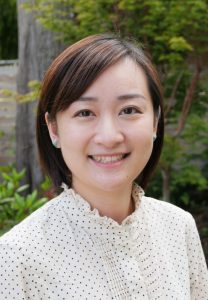
Ke Guo, Robinovitch Family Fellow
“From Home to Zoom: Sustainable Futures for Sephardic Music”
Ke Guo is a Ph.D. student in music education with a focus in ethnomusicology at the University of Washington’s School of Music. She was born in Wuhan, China, and studied applied mathematics at UCLA for her B.S. degree. She then obtained an M.S. in management science and engineering from Stanford University and an M.M. in music education from San José State University. Her research in world music education and ethnomusicology has covered topics in both Chinese music and Sephardic music. As a vocalist and multi-instrumentalist, she is also active as a concert performer, and has offered individual concerts as well as collaborative concerts in America and Europe. Focusing on the topic of the worldwide transmission and reception of Sephardic music both within and outside of the Sephardic community, she is excited to conduct future field research in the Iberian Peninsula, Turkey, and other countries around the Mediterranean. Read about Ke’s research:
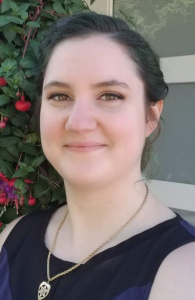
Abby Massarano, Robert and Pamela Center Fellow
“The Binding of Isaac in Late Antique Synagogues: Biblical Art & Jewish Identity”
Abby Massarano is a graduate student in the School of Art, Art History, and Design at the University of Washington, where she is pursuing her M.A. in art history. Her research is focused on the interplay of image and biblical text in Mediterranean and Near Eastern Abrahamic art in Late Antiquity. She received her B.A in psychology with a minor in art history from Mills College in Oakland, CA. After moving to Seattle, she worked in art conservation and preservation before deciding to return to academia. For her fellowship project, Abby is researching the interplay of text and image in late antique Abrahamic art of the Near East and the Mediterranean through scenes of the Akedah (The Binding of Isaac) in synagogues and other worship spaces. In addition to the Stroum Center graduate fellowship, Abby is also a recipient of the Foreign Language and Area Studies Fellowship for Hebrew. Read about Abby’s research:
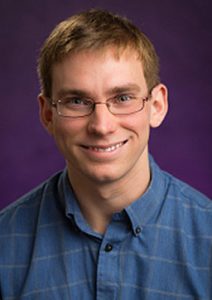
Jeffrey Haines, I. Mervin and Georgiana Gorasht Fellow
“Tracing Jews in Medieval Kurdistan: Syriac and Muslim Sources as a Window into Jewish History”
Jeffrey Haines is a fifth year doctoral candidate in the University of Washington’s Department of History, having previously completed a double B.A. in history and classics at the University of Massachusetts Amherst and an M.A. in early Christian studies at the University of Notre Dame. His dissertation, “Mosul’s Hinterland: Village and Monastery in Early Islamic Mesopotamia,” examines the history of the rural, multi-religious communities that flourished on the northern edge of the Islamic caliphate through the lens of Syriac monastic histories. As a graduate fellow in Jewish Studies, he will focus on the folklore and culture of the Jewish villages that have existed side by side with Christians, Muslims, Yezidis, and Zoroastrians in this region for centuries. Read about Jeff’s research:
The Stroum Center’s graduate fellowship in Jewish studies is an annual program that supports advanced graduate students researching topics related to Jewish studies through a stipend, workshops, and professional and scholarly development opportunities. The program is made possible through the generosity of community supporters. Learn more about the program.
